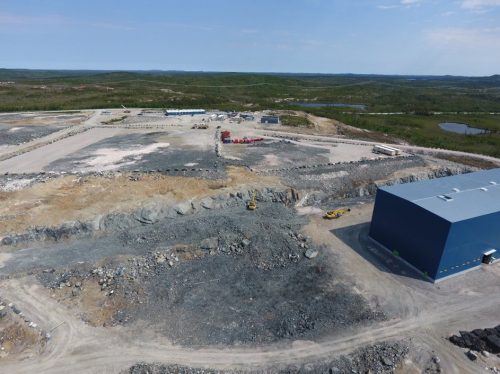The priority list for the critical minerals that Ottawa calls the “building blocks for the green and digital economy” is “effectively meaningless”, critics say, with broad, subjective criteria that lack sufficient focus on the energy transition.
First published by Natural Resources Canada (NRCan) in 2021, with 31 minerals critical to the “sustainable economic success of Canada and its allies,” the list is meant to aid in “building an industrial base for the low-carbon, digitized economy,” while providing certainty to industry, trading partners, and investors on “what Canada has to offer.”
The list is reviewed and updated every three years, and the latest edition adds high-purity iron, phosphorus, and silicon metal to the list. Other countries have their own critical minerals lists: Australia has 31 items listed, the United States 50, and the European Union 34, like Canada.
The materials are “integral to a variety of products,” critical to the energy transition, and often in short supply, NRCan said in a news release announcing the three additions.
Silicon metal is essential for manufacturing chips and semiconductors, the department said, while high-purity iron ore is needed for green steel and is integral to decarbonization. Phosphorus—in addition to its use in producing fertilizers—is needed for lithium iron phosphate batteries for electric vehicles.
“Critical minerals are the building blocks for the green and digital economy and demand for them will only grow throughout the global energy transition,” NRCan wrote. But critics say the list doesn’t target its support for that purpose, instead offering more general support to the mining industry.
“The central problem with this list is that the criteria are so broad, and so subjective, that it is effectively meaningless,” Jamie Kneen, national program co-lead for MiningWatch Canada, told The Energy Mix. “What the government is telling us is that it supports more mining, which isn’t really news to anyone.”
The list is intended to support three primary value chains outlined in the critical minerals strategy, NRCan says: advanced manufacturing, clean technologies, and information and communications technologies and semi-conductors. Minerals make the list if they depend on a threatened supply chain and can reasonably be produced in Canada. They must also be essential to economic or national security, required for the low-carbon economic shift, or capable of positioning the country as a strategic and sustainable partner in global supply chains.
But those criteria open the door to minerals “for things that have little to do with an energy transition,” Justina Ray, president and senior scientist at the Wildlife Conservation Society Canada, told The Mix, indicating that those other uses are equally important to government objectives.
But that could be a problem, said Ray: without a clear delineation, programs and tax credits available under the strategy might be used to promote mineral development for non-climate purposes, which could hold back national climate commitments by diverting investment and resources to other purposes.
“Metals on this list may be intended for military use or just everyday consumer products—the list does not clearly prioritize what is urgently needed for developing low-carbon technologies,” she said.
Including a specific mineral in the list may also affect mining regulations for that specific product. The strategy includes critical mineral mines among clean growth projects that warrant a regulatory framework review, with the aim of advancing them in a “timely and predictable manner.”
NRCan says reviews should be done “while safeguarding the interests of Canadians, protecting the environment, and respecting the rights of Indigenous peoples.”
But notably, the strategy calls for streamlining impact and environment assessments for these projects to meet a “one project, one assessment” objective when both federal and provincial assessments are required.
Ray said Canada’s resource development approach, which relies “on project-level mitigation to address the ecological and social issues that inevitably arise”, has led to environmental damage. And there is no indication the government will rethink its approach.
This is especially worrying when critical mineral mines are located in areas of “high ecological integrity,” including Canada’s vast northern peatlands, which are a significant global carbon sink.
Mining projects can also bring hazards to environments and communities from road development or discharge of potentially toxic mine water.
“Without appropriate strategic foresight and regional planning prior to development, these impacts can become a runaway train of impacts on wildlife, ecosystems, and carbon stores thanks to piecemeal planning that doesn’t consider cumulative impacts,” Ray said.











